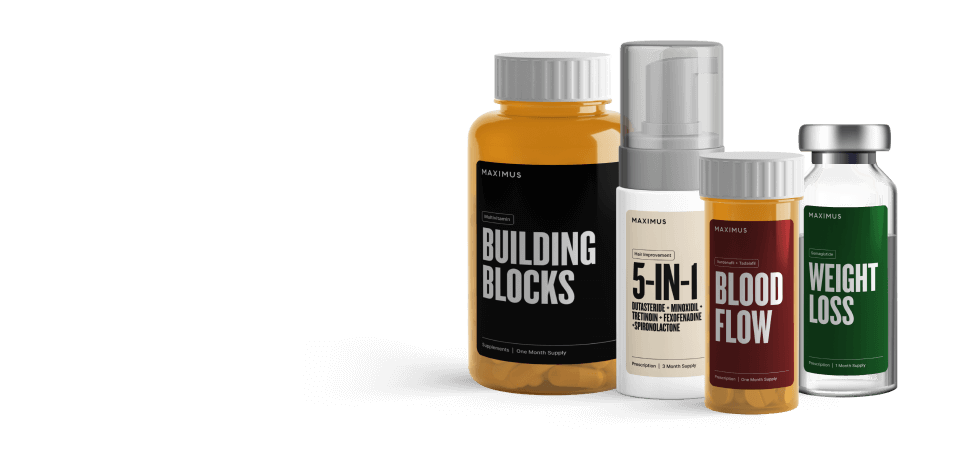Key takeaways
- Burnout and a lack of mental energy can both contribute to someone falling into a rut.
- There are a number of ways to get out of a rut, including setting measurable goals and reframing your thinking.
- A rut is situational: If you find yourself feeling stuck in a rut for an extended period of time, it may be an indication to seek out support from a mental health professional.
It happens regardless of age, athleticism, or relationship status: You get stuck in a rut. Maybe you’re waiting on a promotion that doesn’t ever seem to come or you feel like you’re going through the motions in your social life, unable to build strong relationships.
The good news is, there are many ways to bring yourself out of this feeling. Today, we’re here to help you understand why you might get stuck in a rut and hone in on ways to avoid repeating it in the future.
Keep reading for expert- and science-backed solutions to get yourself back on track.
Spinning your wheels? Here’s how to know if you’re in a rut
Being stuck in a rut is different than having a bad day. Waking up one day feeling stagnant and uninspired, with no desire to go to work, do school drop-off, or hit the gym doesn’t necessarily mean you’re in a rut. But if this lack of motivation and feeling of monotony continues for multiple days — with no changes — or gets progressively worse, that could indicate that you’re in a place of feeling stuck. Other signs that you may be in a rut include feeling like you’re unable to progress toward your goals, feeling frustrated or bored, having negative thoughts, or feeling apathetic about change.
Why high achievers might fall into a rut
Pushing through the day when you’re running on little sleep, had a terrible work call, or fought with your partner is hard enough. Yet that limited energy can have real consequences, causing brain fog, limiting your concentration, and even hurting your cognitive performance. As a result, you may lack motivation or constantly criticize yourself, pushing yourself deeper into the rut.
Burnout can also cause you to get stuck in this type of mental spiral. A 2021 survey conducted by the American Psychological Association found that:
- 36 percent of respondents reported feeling “cognitive weariness” in the prior month.
- 32 percent said they were “emotionally exhausted” at some point during the same time period.
This type of mental fatigue can lead to negativity, a lack of energy, and reduced productivity — all characteristics associated with being in a rut.
How to power through when you’re feeling stagnant
Even though it may not be considered a medical condition, there are scientifically-backed ways to get out of this thought spiral. Here are some of our best strategies:
- Strategic goal-setting: You’re likely familiar with goal-setting: Setting yourself on a mission and taking steps toward reaching a certain objective. However, many of us often fall off the path, seeing our goals as too big and too unattainable. Goal-setting can be a way to break out of a rut by giving yourself something to work toward. Yet instead of just setting a lofty resolution that you’ll fail to achieve — and pushing yourself right back into a rut as a result — consider setting yourself up for success with SMART (specific, measurable, attainable, relevant, timebound) goals. By setting goals with these objectives in mind, you’ll have an easier time sticking to them and following through.
- Reframe your thinking: When you’re in a rut, it can be easy to get stuck in a spiral, running through the same thoughts over and over (and over) again. Stopping this cycle is essential to get out of a rut. Try to think about your life — and the situation — realistically, taking a macro-level view. What can you actually control? What are external factors that you can't? Focus on the former, instead of the latter.
- Prioritize your health: Sometimes, a mental rut may be the result of a lack of healthy habits. A 2018 study published in JAMA Psychiatry found that not sleeping or exercising enough can lead to a depressed mood. Make sure you’re getting sufficient sleep, eating a healthy diet, and exercising regularly. You may be surprised to find how much these small changes can positively affect your mindset.
- Go outside: It’s about more than just touching grass. Research found that being outside can actually benefit your mental health. A 2022 review published in the Science of The Total Environment found that more time in green space was associated with decreased levels of loneliness. Other research indicates that being outside may help improve cognitive functioning and decrease irritability.
- Reach out for support: Being in a rut is normal — and temporary. But if you find yourself feeling particularly stuck for a prolonged period of time, consider reaching out to a friend, family member, or even a mental health professional for support. Feeling down for an extended period of time could be an indication of a larger mental health condition, such as depression.
Dr. Cam’s health hack:
The next time you’re feeling stuck, consider trying this tip from Dr. Cam to help break yourself out of a rut and induce a more positive state of thinking. It’s all about changing your perspective:
"Speaking to yourself from another ego identity altogether is a more effective way of self-coaching and cognitive reframing.
It's hard to change your mind using the same 'mind' that created the issue, so you have to literally look at it from a different (identity's) perceptive."
Disclaimer: The contents of this article, including, but not limited to, text, graphics, images, and other information, is for information purposes only and does not constitute medical advice. The information contained herein is not a substitute for and should never be relied upon for professional medical advice. The content is not meant to be complete or exhaustive or to be applicable to any specific individual's medical condition. You should consult a licensed healthcare professional before starting any health protocol and seek the advice of your physician or other medical professional if you have questions or concerns about a medical condition. Always talk to your doctor about the risks and benefits of any treatment. Never disregard or delay seeking professional medical advice or treatment because of something you have read on this site. Maximus does not recommend, endorse, or make any representation about the efficacy, appropriateness, or suitability of any specific test, products, procedures, treatments, services, opinions, healthcare providers or other information contained herein. Maximus is not responsible for, nor will they bear any liability for, the content provided herein or any actions or outcomes resulting from or related to its use.








